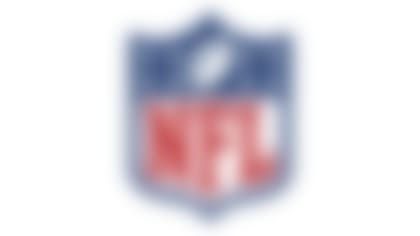The NFL and NFL Players Association quickly are approaching the point where the tentative agreement to implement human growth hormone testing for the 2013 season will be rendered null and void.
The tentative agreement -- contingent on the parties agreeing to whether or not NFL Commissioner Roger Goodell has appeal power over cases involving the law and evidentiary cases -- relies on preseason collection of blood samples in order to conduct a population study, which would set the threshold for a player's positive test. The league then would collect samples for testing starting in Week 1, with potential suspensions coming once the population study is completed.
Saturday is roster cutdown day, so the reality is that the time is now for a deal. George Atallah, NFLPA assistant executive director for external affairs, told NFL.com last week that it would take one to two days to organize the blood draw and three to five additional days to execute it, meaning that even a finalized agreement Tuesday would mean a rushed process.
"It's one of those things that's tough to put an end date on, but we're certainly at the point where every second matters," Adolpho Birch, NFL senior vice president of law and labor policy, said Tuesday. "The longer we wait, it becomes increasingly hard to do what the parties agreed to. Players are starting to be released, and with every player released, that's one less eligible to participate in the population study. We're already starting to erode our ability to do what was agreed to."
Atallah said that, "at this point, things have pretty much been status quo."
Birch didn't rule out the idea that testing could go midstream during the 2013 season, but he said that it would be more difficult logistically.
"Anything is possible, but it's logistically challenging to figure out a method by which we could carry out the plan as the parties agreed to it," Birch said. "To implement the regular testing, we'd have to allow players to understand the system, clubs would have to have an understanding of how it would work, collectors, independent administrators – those issues are all compounded with a makeshift system that doesn't have a fluid start."
The sides have only briefly touched base since last week, according to Birch.
"We've touched base, we resent them the letter (on the population study agreement) recently, reminding them what we agreed to," Atallah said. "But I mean, we're status quo."
Birch also emphasized, in explaining the league's position, that the NFL has made several concessions to have testing implemented.
One such agreement was on the controversial issue of Adderall. Birch said that, as part of the tentative plan, Adderall would be treated as a recreational drug during the offseason and a performance-enhancer during the season under the policy. That would mean that, in the offseason, a first positive would not lead to a suspension.
Birch took exception to the idea that the NFL and NFLPA don't want testing and are conveniently avoiding an agreement.
"We've been asking for HGH testing since 2008. It's been part of every proposal we've put together," Birch said. "When you look at the number of concessions we've made in order to fulfill the commitment to do HGH testing, one would have a hard time arguing that we'd make those concessions if we didn't want the testing. And look at the nature of the concessions we've made, they're sizable, but in the interest of resolving the issue and getting testing, we've made those concessions.
"From a PR standpoint, we've always maintained the best PR is to have an effective policy that restores public confidence in the game, is fair for the players and sends the right message to kids."











